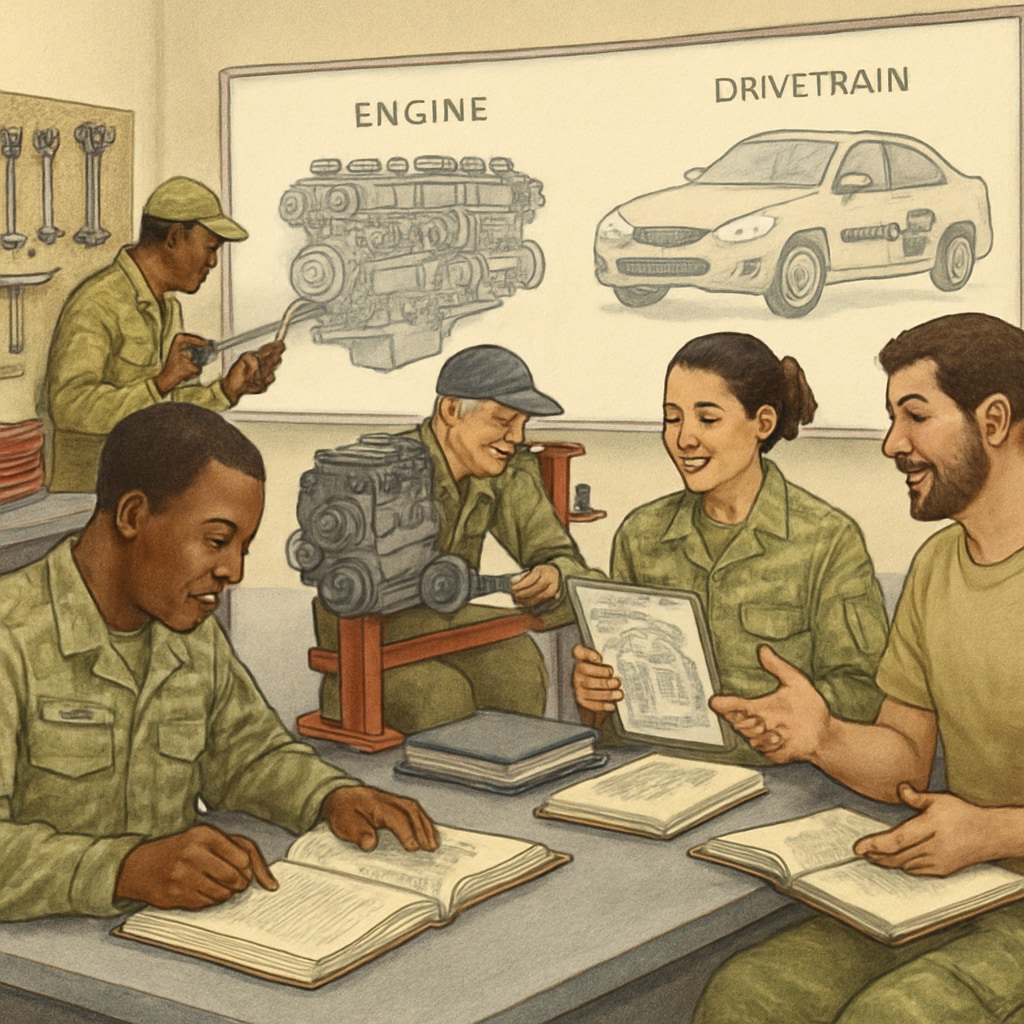Transitioning from an associate degree in automotive technology to a bachelor’s degree can open new doors for military veterans, offering enhanced career opportunities and specialized skills. This journey involves understanding credit transfer strategies, identifying compatible bachelor’s programs, and aligning education with long-term career goals. For veterans, this process is not just about academic advancement; it’s also about leveraging prior learning for maximum benefit.
Exploring Credit Transfer for Automotive Technology Degrees
One of the first steps in moving from an associate degree to a bachelor’s program is understanding how to transfer credits effectively. Many universities offer articulation agreements (formal credit transfer arrangements) with community colleges or military education programs. These agreements ensure that previously earned credits in automotive technology count toward the requirements of a bachelor’s degree.
For example, the American Council on Education (ACE) evaluates military training and coursework, providing recommendations for academic credit. Veterans should explore universities that recognize these credits and offer flexible pathways tailored to military students. Additionally, choosing an accredited institution ensures that the credits are widely accepted and applicable to future education or certifications.
- Research articulation agreements between your community college and universities.
- Request an official evaluation of your military training credits through ACE.
- Choose regionally accredited universities for broader credit acceptance.

Compatible Bachelor’s Degree Programs for Automotive Technology
Veterans with an associate degree in automotive technology often wonder which bachelor’s programs align best with their background. While continuing in automotive technology is a natural choice, other fields such as engineering technology, business administration, or industrial management can also complement prior learning and expand career horizons.
Here are some popular bachelor’s degree options:
- Bachelor of Science in Automotive Technology: This program deepens technical expertise and explores advanced topics like hybrid systems, diagnostics, and automotive design.
- Bachelor of Science in Engineering Technology: Offers a broader focus on applied engineering principles, suitable for roles in manufacturing or design.
- Bachelor of Business Administration (BBA): Ideal for veterans interested in managing automotive dealerships or starting their own business.
- Bachelor of Science in Industrial Management: Prepares for leadership roles in production, logistics, and operations within the automotive industry.
When selecting a program, consider factors such as online learning options, military tuition assistance, and post-graduation career support. Many universities also have dedicated veteran support offices to guide you through the application process.

Career Opportunities After Advancing Your Degree
Pursuing a bachelor’s degree after completing an associate in automotive technology significantly broadens career possibilities. Advanced degrees are often required for roles in research and development, management, or specialized fields like electric vehicle (EV) technology.
For example, a Bachelor of Science in Automotive Technology can lead to positions such as:
- Automotive Engineer
- Service Manager
- Diagnostic Specialist
- Technical Trainer
In addition, degrees in business or industrial management can pave the way for roles such as supply chain manager, dealership owner, or production manager. With the rise of EVs and autonomous vehicles, professionals with advanced degrees will be in high demand, particularly in roles related to innovation and sustainability.
To further enhance employability, veterans should consider obtaining additional certifications such as ASE (Automotive Service Excellence) or participating in internships offered by industry leaders like Ford or Tesla.
Final Thoughts: Bridging the Gap Between Military and Civilian Education
The transition from an associate degree in automotive technology to a bachelor’s degree can be a rewarding journey for military veterans. By understanding credit transfer, choosing compatible programs, and aligning education with career aspirations, veterans can leverage their unique skills and experiences to achieve long-term success. As the automotive industry evolves, this educational progression ensures that veterans remain competitive and adaptable in a rapidly changing job market.
Whether you aim to advance in technical expertise or transition into leadership roles, the right bachelor’s degree will provide the foundation for achieving your goals. Start by exploring universities that value your military experience and are committed to helping you succeed.
Readability guidance: Use concise paragraphs, incorporate bullet points for clarity, and maintain an engaging tone by using relevant examples. Ensure smooth transitions between sections to guide the reader logically.


